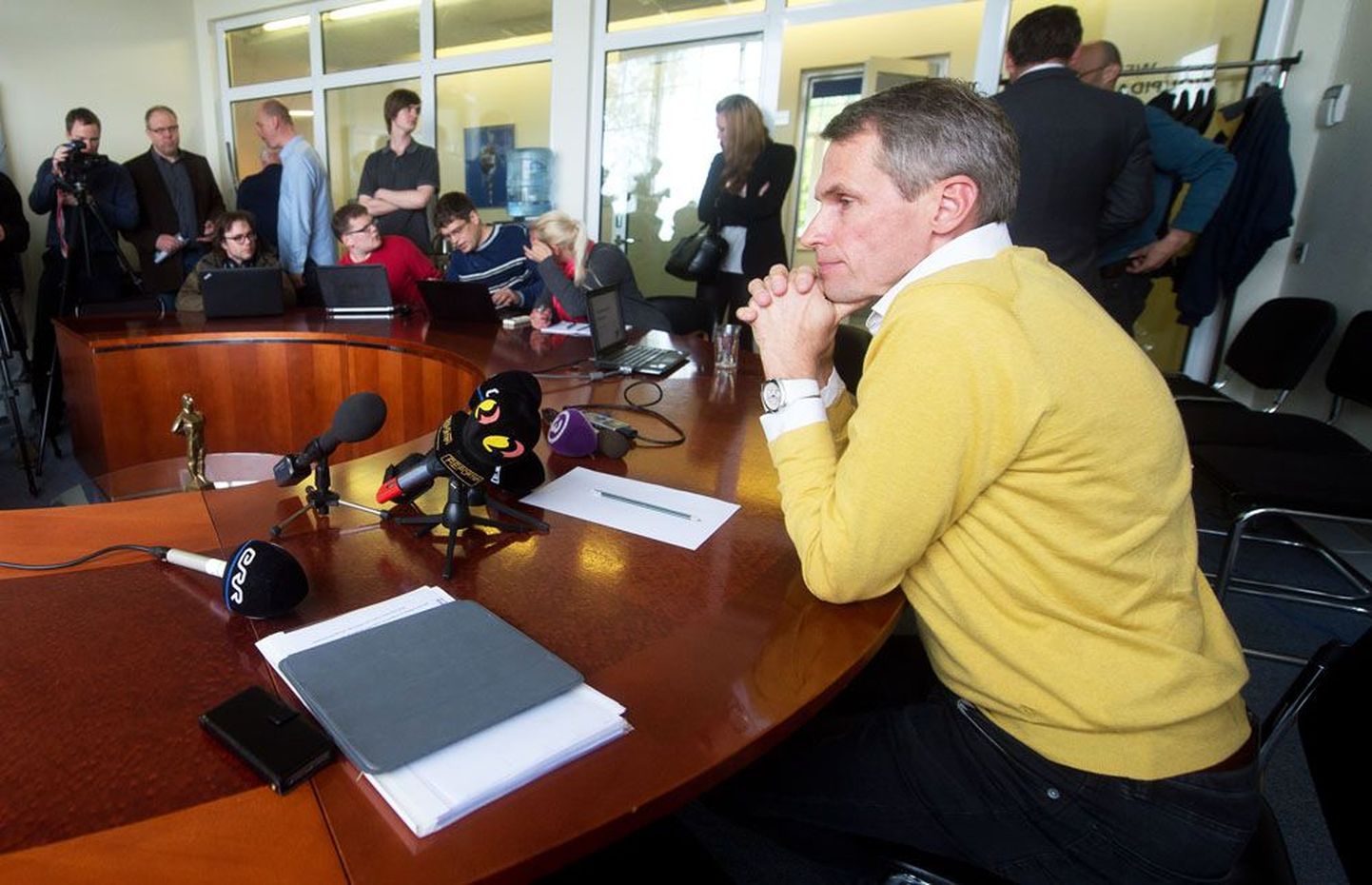
Committee called to investigate claims by Vitali Bernatski thinks Estonia does have other doping dealing doctors.

Committee called to investigate claims by Vitali Bernatski thinks Estonia does have other doping dealing doctors.
Yesterday, the committee tasked with investigating doping-related claims of the infamous Tartu sports medicine physician Vitali Bernatski was supposed to present Estonian Olympic Committee (EOC) with a summary of five months’ work, but publication of its content got postponed by weeks at least. The reason, we are told, is committee members being so busy as to be unable all to sign final version of the report.
Before that, it was already known that the committee lacking legal powers was unable to proclaim anybody guilty. For the time being, it also remains a secret what the committee was told, who were willing to cooperate and who declined to speak.
«We cannot come public with the content of the report as yet, because its text is not final and, thus, it is not excluded that some may still desire to cooperate with us,» explained chairman of the committee Kristjan Port while hinting the investigation was a race with hurdles. «When the honour and dignity of sportsmen or coaches is damaged, they usually are the first to stand for the truth. Our committee, however, had problems contacting the people mentioned by Mr Bernatski and to hear them. Also, we proposed them all to have a confrontation with Mr Bernatski, but by today they have all declined.»
According to Mr Port, the people concerned have already been mentioned in media as related to the case. Among others, clients mentioned by Mr Bernatski include Raul Olle, Mati Alaver, Aleksander Tammert, Harry Lemberg and Roland Lessing – all close to top sports till today.
Though signing of the report has been delayed, Mr Port says it’s not an issue of fundamentals, rather of redaction and emphasis. As an example of that, he points to a statement by committee member Märt Rask who, based on his experience, will never sign a document if not convinced that every comma is in its proper place.
According to Mr Port, during the work of the committee they got exposed to the sad situation of dishonesty quite widespread. «Regrettably, we cannot prove anybody’s guilt, neither did we set out to do that,» admitted Mr Port. «We discovered that, of the circumstances described by Mr Bernatski, some can be proven – he was a doctor working with top sportsmen, he is known by a large part of the people mentioned in this case, and he has obtained large amounts of medicines including growth hormone. Even so, we cannot prove whether he has passed any of these to anybody else, and if sportsmen have used them. This is not in the powers of the committee, as we are not an investigative body.»
Mr Port underlined that it was never their task to solve legal issues. What mattered was to see if Mr Bernatski’s claims were credible and whether the people accused had counterclaims strong enough.
«The idea of the report may be split into two. Firstly: could the events mentioned by Mr Bernatski have happened in the timeframe given? And secondly: is there anything we can do to keep this from happening in times to come?» said Mr Port. «I realise Mr Bernatski has provided rather detailed explanations, but the others have not agreed to refute these in a manner as detailed; rather, they have resorted to denial only.»
The committee has come to think that Mr Bernatski is far from being the only doctor who has mediated forbidden substances. Alas, the committee cannot do anything to find these people out. According to Mr Port, they hope State Agency of Medicines will help, as its representatives have called avoiding such cases their sacred duty. «If there’s a will, anything could be searched out; but it’s going to be very much work,» said Mr Port.
Neinar Seli thinks Estonian sports have no doping problem
Estonian Olympic Committee president Neinar Seli is of the opinion that doping problem as such is lacking in Estonian sports. To substantiate this, he refers to the very small number of those getting caught. He admits, though, that one fly in the ointment may spoil it all.
According to Foundation Estonian Anti-Doping board member Kristjan Port, Estonia averages 2.8 doping cases a year. «We may say that, in Estonia, we rather have to do with an invisible problem. On basis of indirect information, it may be established that doping is most widespread in movement-related [sports] activity; but a problem as such does exist,» thinks Mr Port. Mr Seli says he rather believes in the purity of sports and in the sportsmen who are always black-and-white in their statements. «I believe it when people say they have not used forbidden substances,» said Mr Seli.